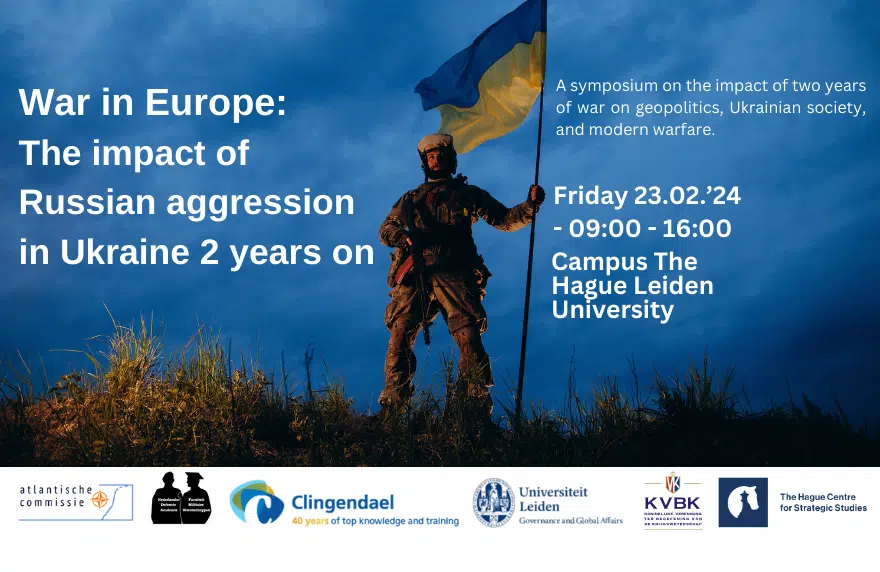From June 24-28, 2024, the international multidisciplinary workshop “Towards a multidimensional understanding of European security” took place in Helsinki, Finland. HCSS Director of Research Tim Sweijs and Principal Scientist Stephan de Spiegeleire participated in the programme, discussing what lessons can be learned about the future of war from the current war in Ukraine, as well as new data analytical tools and methods for studying Russia and security related themes.
The purpose of this 5-day long workshop was to consolidate cooperation among researchers studying the changing nature of war with a specific focus on Russia and Euro-Atlantic security.
The workshop was organized in cooperation with the Mannerheim Chair of Russian Security Studies at the University of Helsinki and the National Defence University, the Finnish Institute of International Affairs and the Project RuBase (a collaboration between the Sam Nunn School of International Affairs, Georgia Institute of Technology/GA Tech and the Hague Center for Strategic Studies/HCSS).
The first day of the workshop sessions was organized at the FIIA and was devoted to discussing how the war in Ukraine changes the scholarly understanding of changing nature of war, offering an analysis on Russia’s way of war and the key policy challenges it creates for Europe. Furthermore, panelists also explored specific challenges related to deterrence, escalation, and the relationship between statecraft and long-term competition with Russia.
During the day we heard presentations by distinguished panelists, including: Professor Adam Stulberg (Sam Nunn School of International Affairs, Georgia Institute of Technology); Tim Sweijs (Director of Research, HCSS); Roy Allison (Professor, University of Oxford); Bettina Renz (Professor, Univ. of Nottingham) & Juha Kukkola (Assistant military professor, the National Defense University of Finland); Katri Pynnöniemi (Associate professor, University of Helsinki (UH) and FNDU); Gen. (ret.) Philip Breedlove (Georgia Institute of Technology), Hanna Smith (Senior strategic advisor, OSCE), Hanna Ojanen (Research director, University of Tampere); Sinikukka Saari (Research director, FIIA), and Tuomas Forsberg (Professor, University of Tampere).

The second and third days of the workshop were organized at the University of Helsinki, Kaisa-library, and focused on exploring new data analytical tools and methods for studying Russia and security related themes. First, Senior Research Fellow Kimmo Elo introduced computational social science research process and presented two research projects: basics of geospatial visualizations and analysis with R) and text mining of Finnish Parliament debates on NATO, 1950-2022. Second, professor Adam N. Stulberg presented the RuBase project that develops a new knowledge platform for scholars of International Relations and U.S./European-Eurasian relations. It is comprised of a comprehensive, Russia-specific corpora of material related to the country’s evolving discourse, strategies, policies, and international outcomes. It supports a set of tutorials related to computational approaches, methods and tools that can be accessed to query and extract empirically rich and analytically rigorous insight.
Thirdly, Stephan de Spiegeleire (HCSS Principal Scientist) explained the pros and cons of bibliometrics versus full text natural language processing (NLD/LLM). Specifically, the presentation addressed the question of whether LLM are in many ways much easier, accessible and powerful than more traditional NLP. Additionally, the use of LLM’s was showcased in the context of framing a research topic (example of taxonomy). During both days, students presented their research projects, followed-up by discussions on how to use new data-analysis themes.
The fourth day of the workshop was organized in cooperation with the Ministry of Defence of Finland and was devoted to developing scenario-based analysis to make sense of Russia’s future trajectory, whichincluded a discussion on the impact of emerging technologies on the changing nature of war in Europe. The speakers included: Olli-Matti Mikkola (Research Scientist, Phd, Natural Resources Institute); Stephan de Spiegeleire (HCSS); Sinikukka Saari (Research Director, FIIA); Dr. Will Roper, (Chief Executive Officer of Istari Digital, Distinguished Professor at Georgia Tech); Sasu Tarkoma, Dean, (Faculty of Science, Professor of Computer Science) and Adam Stulberg (Professor, Sam Nunn School Chair of International Affairs).
The last day of the workshop was devoted to discussing ideas for collaborative research networks and joint funding opportunities. Speakers included principal organizers of the event and Eugene Scherbakov, Program Analyst at the Carnegie Corporation of New York.








